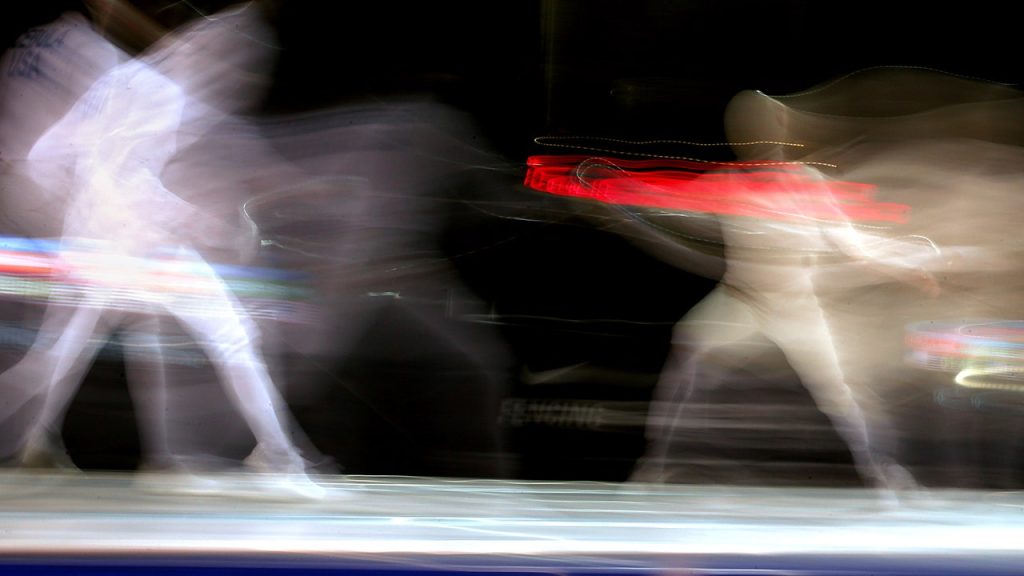The Clash Between USA Fencing and the Fair Fencing Organization: A Deep Dive into Governance, Inclusion, and Political Stances
The USA Fencing board met with significant resistance from its membership during a special meeting held on Saturday, August 26th, 2023. The meeting was called in response to an open letter from the Fair Fencing Organization (FFO), a nationwide non-profit, expressing concerns over the governing body’s policies on a range of issues. The clash between the two entities reflects a broader societal debate on the role of sports organizations in addressing political and social matters.
The FFO’s open letter criticized USA Fencing’s stance on several key areas: tournament site selection criteria, particularly concerning states’ abortion policies; transgender athlete inclusion; and the organization’s approach to diversity, equity, and inclusion (DEI). The FFO argued that USA Fencing should prioritize the interests of its members over "political correctness" when making decisions, setting the stage for a contentious meeting.
One of the primary points of contention was the USA Fencing Site Selection Inclusion Policy. The existing policy considers factors such as profitability, member experience, cost, travel convenience, venue suitability, and inclusivity, giving preference to locations based on ratings from LGBTMAP.org and avoiding states with laws deemed to endanger the health of members, particularly with regard to reproductive healthcare. A motion to amend the policy to allow more flexibility at the city level and discontinue the use of LGBTMAP.org was defeated, highlighting the board’s commitment to its current inclusion criteria. However, a separate motion to explicitly grant more flexibility at the city level passed unanimously, suggesting some potential for nuanced application of the policy.
The debate extended to transgender athlete participation. A motion to create an all-female task force to review and revise the existing transgender athlete policy was rejected by the board. The proposed task force would have included a transgender fencer, but the majority of the board voted against it.
The FFO’s concerns regarding USA Fencing’s DEI initiatives also met with resistance. A motion to restructure the Diversity, Equity, Inclusion, and Belonging office, including changing it to a committee and redirecting its funds, was overwhelmingly voted down. This decision underscores the board’s commitment to maintaining a dedicated office focused on DEI initiatives.
Beyond the issues raised by the FFO, the board addressed other potentially contentious matters. A motion to play the national anthem before all national competitions and championships was defeated, as was a motion to prohibit podium protests and other forms of protest at tournaments. The board’s rejection of these motions suggests a preference for maintaining the status quo regarding these symbolic expressions.
The stark contrast between the FFO’s requests and the board’s decisions reflects a deeper philosophical divide. The FFO’s emphasis on member interests and avoidance of "political correctness" suggests a desire for the organization to focus solely on the sport itself. Conversely, USA Fencing’s actions suggest a commitment to incorporating broader social considerations into its policies and practices.
The outcomes of the special meeting raise questions about the future relationship between USA Fencing and its membership. The board’s decisions, while seemingly in line with its stated values, clearly do not align with the preferences expressed by the FFO and potentially a segment of the fencing community. This disconnect could lead to further tension and challenges for the governing body moving forward. The decisions made during this special meeting are likely to reverberate throughout the fencing community, highlighting the ongoing tension between sporting organizations, social issues, and the diverse viewpoints of their members. The board’s actions may be perceived by some as prioritizing inclusivity and social responsibility, while others may view them as unnecessarily politicizing the sport. The divide underscores the challenges faced by sports governing bodies as they navigate increasingly complex societal landscapes.
The future of USA Fencing hinges on its ability to navigate these competing interests. Whether the organization can find common ground with its members while upholding its stated values of inclusion and diversity remains to be seen. The special meeting serves as a microcosm of the larger societal debate about the intersection of sports, politics, and social issues, demonstrating the challenges organizations face in balancing competing demands and values. The ongoing dialogue between USA Fencing, the FFO, and the broader fencing community will be crucial in shaping the future direction of the sport.
The clash also illuminates the growing tension between national governing bodies and their members regarding the integration of social and political stances within the realm of sports. As seen in the USA Fencing case, striking a balance between inclusivity, athlete representation, and the opinions of a diverse membership base has become increasingly complex. The decisions made by the board will likely have long-term consequences for the organization, impacting its relationship with athletes, sponsors, and the wider fencing community.
The dynamic between USA Fencing and the FFO represents a broader trend in sports governance. Organizations are grappling with how to address complex social issues while maintaining a focus on the core athletic pursuits. The outcomes of these internal debates can significantly impact the overall health and direction of a sport, impacting participation, sponsorship, and public perception. The challenge lies in finding a sustainable path forward that respects both the athletic and social dimensions of the sport.
Ultimately, the situation highlights the evolving role of sports organizations in society. No longer seen solely as facilitators of athletic competition, governing bodies are increasingly expected to take stances on societal issues. The debate within USA Fencing is a reflection of this broader shift, underscoring the need for ongoing dialogue and engagement to navigate the complexities of the modern sporting landscape.

